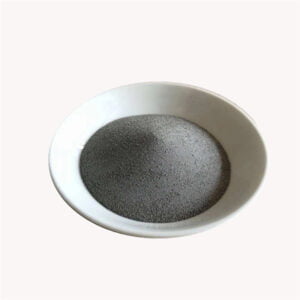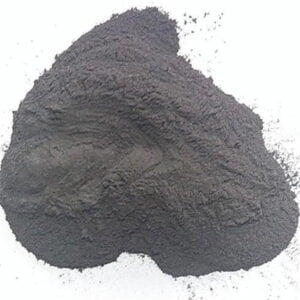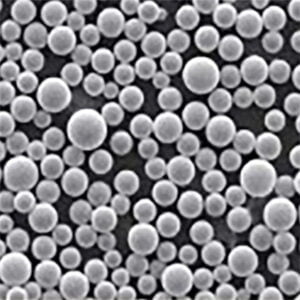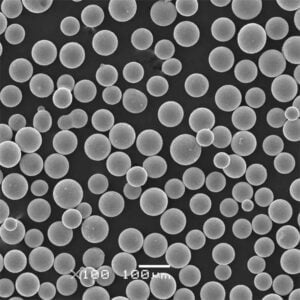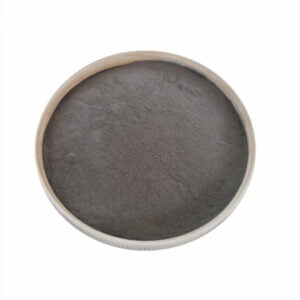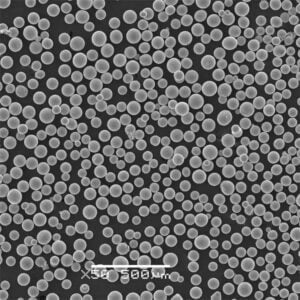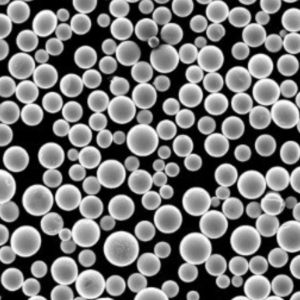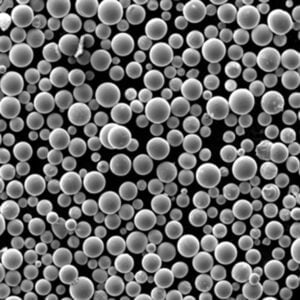Pure Titanium Powder
Table of Contents
Overview of Pure Titanium Powder
Pure titanium powder is a finely divided form of titanium metal, typically with particle sizes ranging from 10 to 150 microns. It features high purity levels of 99.5% or greater. Due to its inherent properties of strength, light weight, corrosion resistance, and biocompatibility, pure titanium powder has diverse commercial and industrial applications.
Some key attributes of pure titanium powder:
| Characteristics | Details |
|---|---|
| Chemical Formula | Ti |
| Purity Levels | 99.5%, 99.6%, 99.9% Ti |
| Particle Size Range | 10 μm to 150 μm |
| Shape | Spherical, irregular, angular |
| Manufacturing Process | Gas atomization, plasma atomization |
| Supply Forms | Powders, granules, paste |
Some notable advantages of pure titanium powder include high strength-to-weight ratio, exceptional corrosion resistance, biocompatibility, ability to withstand extreme temperatures, non-toxicity, non-magnetism.
However, disadvantages consist of high cost compared to competing materials and difficulties in machining due to its inherent hardness.
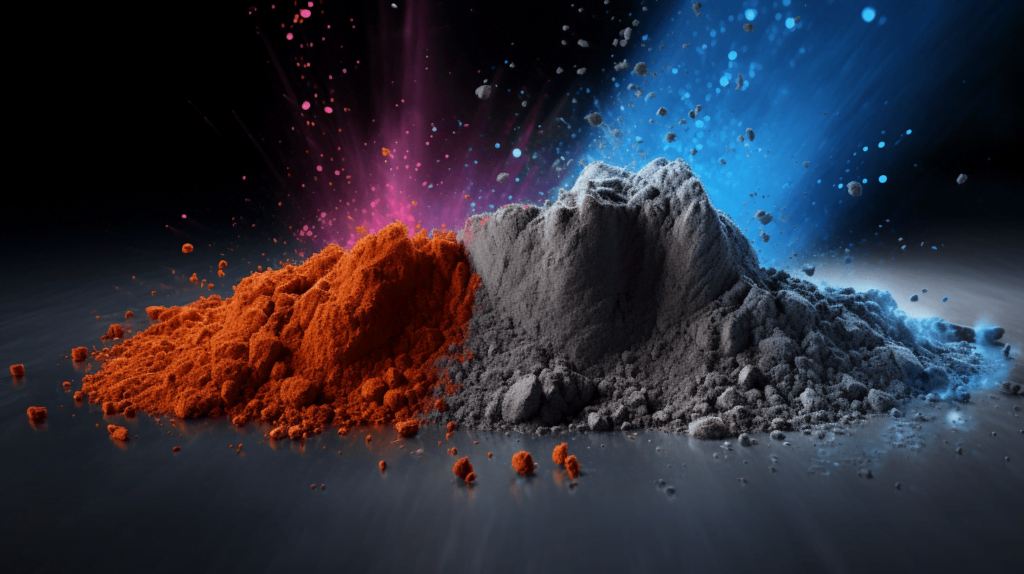
Composition of Pure Titanium Powder
As the name suggests, commercially pure (CP) titanium powder contains only titanium as the principal element with only minor traces of other elements like oxygen, carbon, nitrogen and iron. By definition per ASTM standards, it must have minimum titanium content exceeding 99.5% for the “commercially pure” designation.
| Element | Composition Range |
|---|---|
| Titanium (Ti) | 99.5% min |
| Oxygen (O) | Up to 0.40% |
| Nitrogen (N) | Up to 0.03% |
| Carbon (C) | Up to 0.08% |
| Iron (Fe) | Up to 0.20% |
| Other metals (total) | Up to 0.4% |
The high purity levels result in the inherent properties of titanium like high corrosion resistance, strength-to-density ratio, fatigue limit and biological compatibility that make it ideal for advanced applications.
Key Properties of Pure Titanium Powder
The unique combination of physical, chemical, electrical, thermal and biological properties of high purity titanium powder derives from its electron configuration and makes it well suited to niche applications in aerospace, medical implants, and advanced engineering domains.
| Property | Value |
|---|---|
| Density | 4.5 g/cm3 |
| Melting Point | 1668 °C |
| Thermal Conductivity | 7-16 W/mK |
| Specific Strength | 108 kN·m/kg |
| Tensile Strength | 240-550 MPa |
| Corrosion Resistance | Excellent |
| Bio-compatibility | Excellent |
| Electrical Resistivity | 420-680 Ω.m |
| Non-toxicity | Yes |
| Non-magnetism | Yes |
The high purity levels result in titanium’s inherent properties like high corrosion resistance, strength-to-density ratio, fatigue limit and biological compatibility that make it ideal for advanced applications.
In particulate form as powder, titanium retains its key attributes. Particle size distribution and powder morphology influences the final properties in a part or component fabricated from the powder.
Applications of Pure Titanium Powder
Owing to its versatile material properties, high purity titanium powder finds uses across many critical industries from aerospace components to medical implants and from auto parts to energy applications.
Some major application areas:
| Industry | Applications |
|---|---|
| Aerospace | Engine components, spacecraft parts |
| Medical | Orthopedic and dental implants, surgical instruments |
| Chemical | Corrosion resistant equipment, reactors, heat exchangers |
| Power Generation | Steam turbine blades, liquid metal heat exchangers |
| Automotive | Valves, connecting rods, springs, fasteners |
| Consumer | Sports equipment, eyeglass frames, watches |
| Emerging areas | Additive manufacturing, batteries, seawater desalination |
The biocompatibility and corrosion resistance allows titanium powder to be 3D printed into porous structures ideal for medical implants that integrate with the body. Light weight and high operating temperature capabilities make titanium attractive for aerospace engine parts and other structures.
Globally, the biomedical segment accounts for over 37% of titanium powder consumption followed by aerospace at 26% share. The additive manufacturing sector will likely exhibit the highest growth at over 20% CAGR over the coming decade boosting titanium powder demand.
Specifications of Pure Titanium Powder
Commercially pure titanium powder is available in standardized specifications per grades defined by ASTM International and other regulatory bodies. The grades are based on purity levels from Grade 1 being 99.5% minimum Ti content to Grade 4 with 99.5% Ti. Higher grades possess better mechanical properties.
| Grade | Minimum Ti content (%) | Key Impurities |
|---|---|---|
| Grade 1 | 99.5% | O, Fe |
| Grade 2 | 99.5% | O, C, Fe |
| Grade 3 | 99.5% | O, N, C |
| Grade 4 | 99.5% | O, C, N, Fe |
Particle Size Distribution
Particle size and size distribution is an important characteristic that influences application suitability, powder flowability, final part density and other properties.
Titanium powder particles are sized by standard testing sieves designated in microns or mesh numbers. Common particle size distributions include:
| Size Range | Attributes | Applications |
|---|---|---|
| 10 to 45 microns | – Higher tap density – Improved powder flow | Additive manufacturing, metal injection molding |
| 45 to 106 microns | – Moderate powder flow | Pressed and sintered parts, MIM |
| 106 to 150 microns | – Lower cost – Higher productivity | Non-critical applications |
Finer particles offer better densification while coarser powder suits high throughput applications. Custom particle size distributions tailored to end use can be manufactured via process controls.
Morphology and Shape
The morphology and shape of individual powder particles affects final properties. Spherical powders offer better flow and packing density compared to irregular shapes. Different manufacturing techniques yield varied morphology:
- Gas atomized powders have spherical particles with smooth surface and higher purity
- Plasma atomized powder particles are more irregular and porous with wider size distribution
- Hydride-dehydride process creates angular, irregular particles
Manufacturers provide images depicting particle shapes and surface morphology. Customers can request samples to analyze shape and particle characteristics according to their application needs. Well-controlled particle morphology improves final part quality.
Global Suppliers
High purity titanium powder is produced by a limited number of manufacturers owing to the highly technical and energy-intensive production process. The major global suppliers include:
| Company | Country |
|---|---|
| Advanced Powders & Coatings | USA |
| AP&C Canada | Canada |
| ATI Powder Metals | USA |
| Carpenter Technology | USA |
| OSAKA Titanium | Japan |
| Toho Titanium | Japan |
Several Indian manufacturers also produce CP titanium powder to serve domestic markets. Custom toll processing services are offered wherein customer-supplied titanium ingots and scrap are converted into powder.
Pricing
As a specialty metal product, CP titanium powder commands higher pricing relative to standard metal powders. Cost depends strongly on:
- Purity grades: Grade 1 powder with 99.5% Ti base is most expensive; Grade 4 powder with higher impurities is lower cost
- Processing method: Gas atomized powder is priced higher over plasma atomized powder
- Particle size and distribution: Finer powders below 45 micron size are pricier versus over 106 micron powder
- Purchase volume: Buying full container loads allows negotiation on pricing
| Grade | Price Range |
|---|---|
| Grade 1 | $70-$195 per kg |
| Grade 2 | $45-$115 per kg |
| Grade 3 | $40-$100 per kg |
Prices vary among global suppliers based on production costs, raw material contracts, energy expenses and local market conditions. Large buyers able to place high volume orders gain bargaining power on pricing.
Comparing Commercially Pure vs. Titanium Alloys
Commercially pure titanium powder differs from titanium alloys which incorporate other metallic elements like aluminum, vanadium, and molybdenum to enhance specific properties like strength and hardness.
| Attribute | Commercially Pure Powder | Titanium Alloy Powder |
|---|---|---|
| Composition | 99.5%+ Ti | Ti + other metals like Al, V, Mo |
| Purity | Very high | Moderate |
| Cost | Expensive | Low cost |
| Strength | Moderate | Very high |
| Hardness | Low | High |
| Corrosion resistance | Excellent | Good |
| Biocompatibility | Excellent | Moderate |
| Applications | Medical, marine, heat exchangers | Aerospace, automotive |
CP titanium favors long term implanted medical devices and seawater applications where biocompatibility and corrosion behavior is vital while titanium alloys are selected for mechanical strength needs.
Pros and Cons of Pure Titanium Powder
Pure titanium powder delivers many performance benefits but also comes with few drawbacks as highlighted below:
Advantages
- Excellent strength-to-weight ratio
- Bio-compatible and non-toxic
- Extreme corrosion resistance
- Withstands high temperatures
- Easy to alloy and modify properties
- Non-magnetic
Disadvantages
- Expensive material
- Reactive to oxygen at high temperatures
- Difficult to machine in bulk form
- Low hardness and wear resistance
- Requires inert gas shielding during processing
- Limited global availability
With sound engineering design, the benefits of high purity titanium powder outweigh the limitations for specialized applications. Ongoing research targets improved manufacturing methods for efficiency and cost reduction.
Outlook for Purity Titanium Powder Industry
The global market for commercially pure titanium powder amounted to $800 million revenue in 2022. Buoyed by growth drivers, revenues are forecast to reach $2.5 billion by 2030 exhibiting a healthy CAGR of 12.4% through the decade per independent market research.
Key aspects that will bolster demand are:
- Expanding 3D printing industry utilizing titanium powder for aviation components
- Rising penetration of titanium medical implants and devices
- Stringent policies for desalination plants to use titanium heat exchangers
- Developments in metal injection molding and powder metallurgy techniques
- Automotive and aerospace sectors shifting to lightweight titanium parts
- New product innovations across consumer goods utilizing titanium
Challenges restraining market growth include titanium’s high price compared to steel and aluminum, supply-demand imbalance, intensive production process, and availability of competitive powders like cobalt-chrome alloys.
Leading players are investing to improve production methods while newly emerging suppliers in China, India and Korea will try capturing market share. In the long run, industry analysts remain bullish on shiny prospects for pure titanium powder producers over the next ten years.
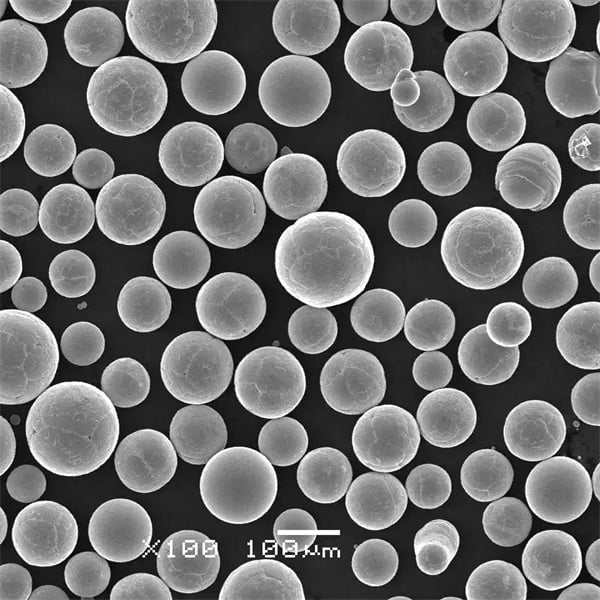
FAQ
What is pure titanium powder?
Pure titanium powder is a finely divided form of titanium metal. It consists of small particles of titanium with high purity and is often used in various industrial applications.
How is pure titanium powder produced?
Pure titanium powder is typically produced through a process called powder metallurgy. In this method, titanium sponge or other feedstock materials are atomized or ground into small particles, which are then used to create the powder.
What are the characteristics of pure titanium powder?
Pure titanium powder is known for its high corrosion resistance, excellent strength-to-weight ratio, and biocompatibility. It is lightweight, durable, and can withstand harsh environmental conditions.
What are the common uses of pure titanium powder?
Pure titanium powder is used in various applications, including additive manufacturing (3D printing), aerospace components, medical implants, and automotive parts. It is also used in the production of fireworks and pigments.
Is pure titanium powder safe for human use?
Yes, pure titanium powder is generally considered safe for use in medical implants and dental applications due to its biocompatibility. It is hypoallergenic and does not react with the human body.
Share On
MET3DP Technology Co., LTD is a leading provider of additive manufacturing solutions headquartered in Qingdao, China. Our company specializes in 3D printing equipment and high-performance metal powders for industrial applications.
Inquiry to get best price and customized Solution for your business!
Related Articles
About Met3DP
Recent Update
Our Product
CONTACT US
Any questions? Send us message now! We’ll serve your request with a whole team after receiving your message.

Metal Powders for 3D Printing and Additive Manufacturing
COMPANY
PRODUCT
cONTACT INFO
- Qingdao City, Shandong, China
- [email protected]
- [email protected]
- +86 19116340731







